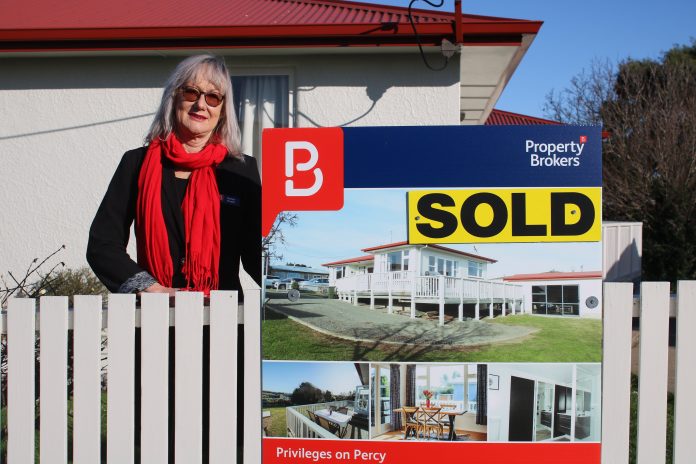
The North Otago real estate market is bucking the national trend once again.
Statistics for July show New Zealand, for the first time in more than 10 years, has become a buyers’ market as sales slow down. However, the Waitaki district seems to be somewhat of an anomaly, the number of listings falling by almost a-third.
The New Zealand Property Report for July 2022 released by realestate.co.nz revealed the number of houses on the market had fallen by 31.9% in the Waitaki region, compared with the same time last year. Nationally, more than 11 regions had doubled their stock for the same period.
One Agency’s Alan McLay said real estate agents had been ‘‘having a ball’’ with a buoyant property market over the past few years. Things had slowed but it was a ‘‘correction’’ that needed to occur.
‘‘Realistically, you hate it dropping, but you don’t want it to keep going — you know it’s unreal,’’ Mr McLay said.
‘‘In Oamaru, we’re quite unique because we don’t peak and trough like the other places do. We tend to climb gradually, and flatten off.
‘‘So I’m reasonably optimistic about our market, but I think we have to face realities, it’s not going to be quite as buoyant as it’s been.’’
Buyers were looking ‘‘across the board’’ for houses, but things were slowing down at the ‘‘bread-and-butter’’ end of the market — in the $300-$500,000 price bracket —where the majority of sales took place, he said.
‘‘Some of the higher-end ones, I think, tend not to be quite as affected. They probably sell to the same extent they always have.’’
LJ Hooker Oamaru principal Stephen Robertson and Property Brokers agent Heather Burgher agreed the local market had slowed, but for them the number of out-of-town inquiries had been significant.
Mr Robertson put the listing shortage down to the unusually bad weather, and he expected it to pick up in spring.
‘‘It’s been a pretty wet month, the last month, and I think that has an impact on everything, but our out-of-town inquiry is probably doubled, so that’s really interesting.’’
Of the inquiries they received on properties, about 40% were from out of town, compared to a more usual 20%, he said.
‘‘So, increase in out-of-town inquiry, definitely slower locally, but again I think that’s weather-impacted in winter, and should come right in spring’’
There was an element of levelling out in the market, but he thought it should hold quite well.
‘‘Again, what we’re seeing is the out-of-town interest increasing because of that affordability factor, so that tends to hold our market longer and stops it from dropping really . . . we saw the same pattern in 2008.’’
Mrs Burgher said Property Brokers also had strong interest from ‘‘up north’’, particularly for lifestyle properties, of which there were few.
‘‘We had 13 inquiries on one of our lifestyle properties a month ago.’’
The drop in residential listings in and around Oamaru and surrounding towns, was probably reflected in residential sales. In March, there were 45, April 35, then in May, June and July, 31, 29 and 29, respectively, she said.
‘‘I think there are fewer people at open homes, and not a lot of first-time buyers,’’ she said.
‘‘People are still trading, but it is slowing, and properties are on the market a little longer.
‘‘I think it’s a little quieter than the last few winters, but Oamaru is still selling.’’
According to the July property report, overall average asking prices in Waitaki were looking stable, with a 2.3% rise from $468,662 in July last year, to $479,423.
A realestate.co.nz spokesperson said nationally the increase in listings was in stark contrast to record lows witnessed a year ago.
‘‘Throughout 2021, we saw record-low housing stock month after month, which would have created challenges for buyers and increased urgency in the market.
‘‘For the last few months, New Zealand has experienced housing stock levels not seen since 2019. This has created a stable and less urgent environment for buyers,’’ they said.
The figures also showed the New Zealand property market had settled into a ‘‘new, more stabilised normal’’ due to factors such as a record number of building consents for new homes, and buyer Fomo (fear of missing out) easing.



